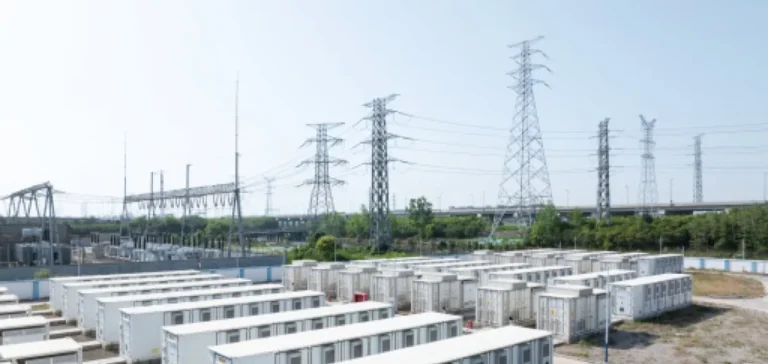Kyoto Group has commissioned a 56 MWh thermal storage unit at KALL Ingredients’ corn processing facility in Tiszapüspöki, Hungary. This is the world’s largest industrial thermal energy storage system based on available data. The system, named Heatcube, will generate more than 30 GWh of process heat annually, replacing natural gas and cutting up to 8,000 tons of carbon dioxide emissions.
KALL Ingredients operates one of the newest corn processing plants in Europe, with a capacity of up to 530,000 tons of corn per year. The site produces starches, alcohol for pharmaceutical and food use, sweeteners, and feed ingredients. The Heatcube technology will now be used to supply steam for the plant’s industrial processes.
A fifteen-year operating model
The installation is based on a Heat-as-a-Service (HaaS) business model implemented via a single-purpose vehicle in Hungary. The project was funded by Kyotherm as majority investor, with Energiabörze as the energy trading partner and minority investor, and Kyoto Group as the technology provider. The agreement between the parties covers a 15-year term.
The Heatcube system operates using intermittent renewable energy to heat molten salt above 400°C, storing the thermal energy for later release as high-temperature steam. Each module offers a storage capacity ranging from 39 MWh to 104 MWh, with a maximum discharge power of 14 MW.
Participation in flexibility markets
In addition to supplying industrial steam, the unit will participate in Hungary’s flexibility markets. It will leverage stored energy in response to grid conditions, particularly during renewable generation peaks. This flexibility aims to improve grid management and reduce energy costs for industrial users.
The Heatcube commissioning followed Thermal Energy Day, a conference organised by Kyoto Group in Budapest. The event gathered industry players such as McKinsey & Company, Aurora Energy Research, and BASF to discuss challenges and developments in industrial heat and energy storage.





















